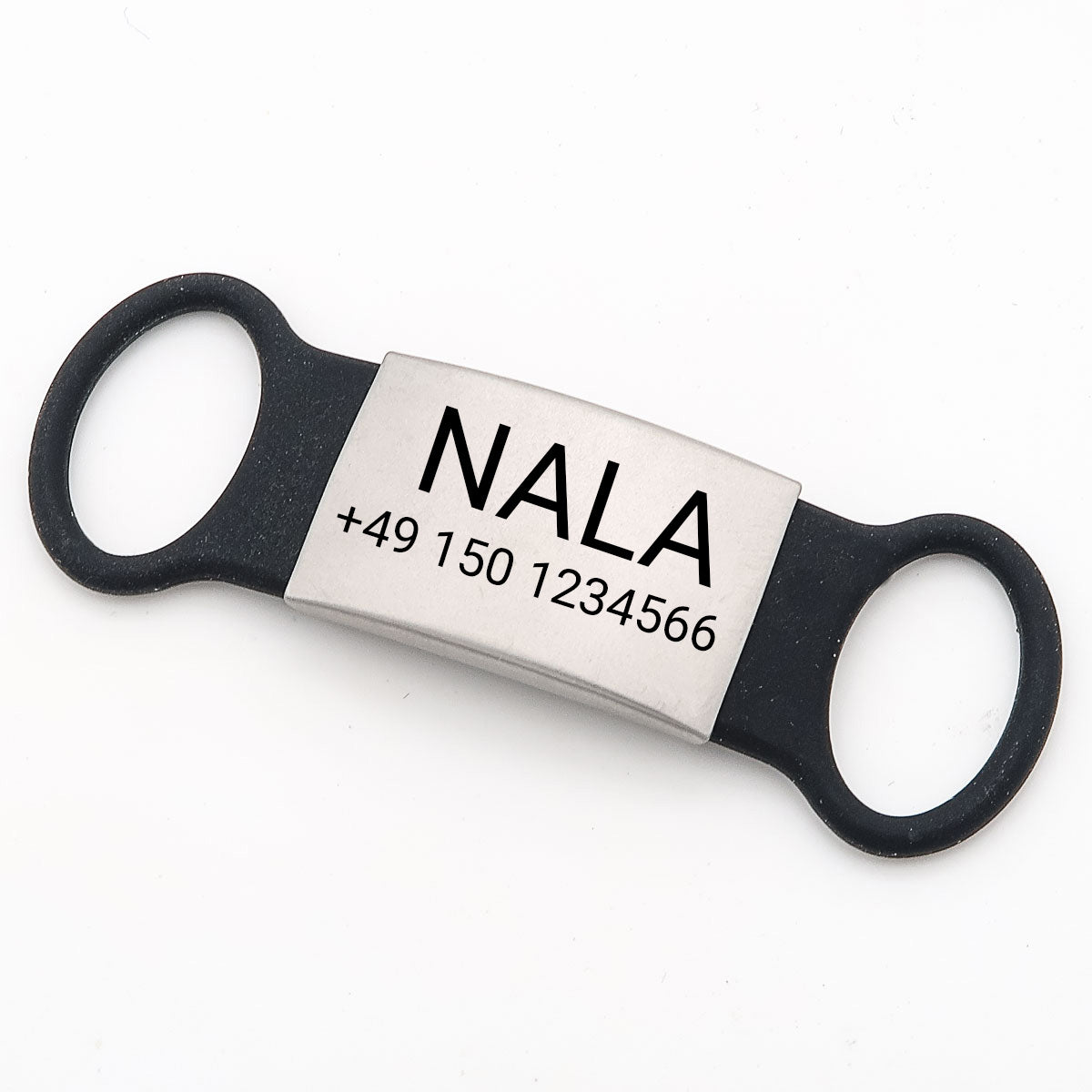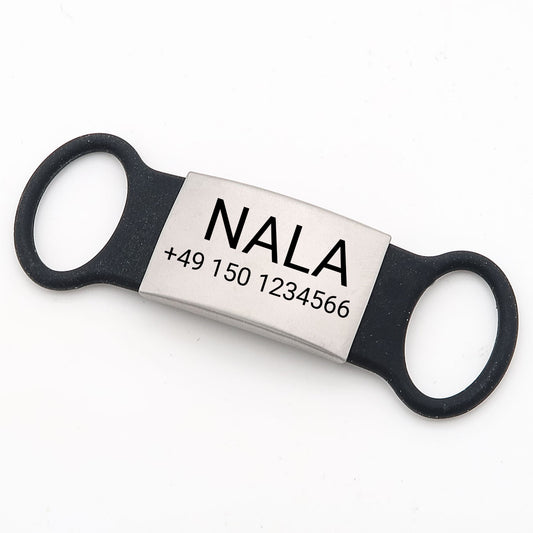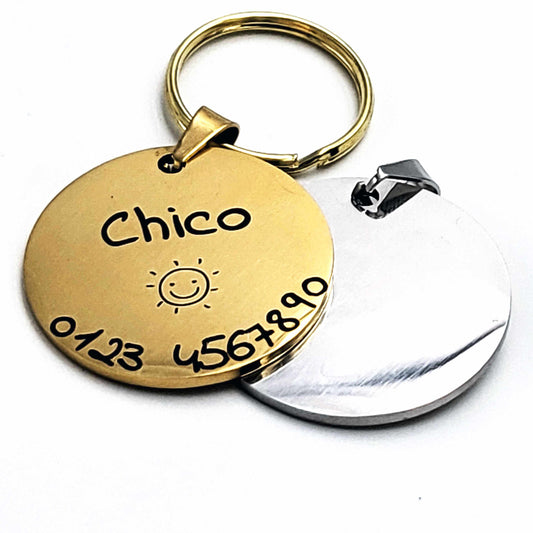
Dog trembles: causes and solutions for concerned dog owners
Share
In the silence of the night it may be worrying if your dog trembles. The health of your loyal companion always comes first, and in this article we will shed light on the possible causes and solutions for this symptom. From physical pain to emotional fears - let us explore the reasons why your dog trembles. A look at the world of dog health to understand when to act and see a veterinarian. Immerse yourself and read more about the multi -layered facets behind the Trembling of your dog could be.
1. Causes of trembling dogs
Imagine your loyal dog suddenly trembles and you ask yourself concerned about the reasons. The tremor in dogs can have a variety of causes that range from stress and fear to physical complaints. Stress is a common source for this behavior, which can be triggered by fears or uncertainties. It is important to respond sensitively to your dog's needs and to identify possible stress factors. Diseases such as pain or mental stress can also lead to shaky behavior. An attentive look at the symptoms of your dog and a timely visit to the vet are crucial to recognize and treat serious problems at an early stage. Keep an eye on that your dog may need help - be it through calming techniques or veterinary support.
2. Stress as a common cause of tremors in dogs
Stress can be a common trigger for tremors in dogs. Similar to humans, our loyal four -legged friends can lead to physical reactions that are expressed in the form of tremors. It is important to recognize the different stress factors that could affect the well -being of our dog. Changes in the environment, unusual noises or even fear of separation can cause strong emotions in a dog and thus lead to stress -related tremors. As a responsible dog owner, it is therefore crucial to respond sensitively to the needs of your own animal and, if necessary, take appropriate measures to reduce stress. With sensitive attention and possibly professional support, we can help our beloved four -legged friends to deal with stress and lead a quieter life.
3. Diseases and pain as possible reasons for the tremor of the dog
The tremors of dogs are often attributed to stress or fear, but diseases and pain can also be put behind. It is important to keep an eye on the health of the dog and to take possible causes for his tremors seriously. Sometimes physical symptoms such as joint pain or diseases such as diarrhea are responsible for the unwanted tremors. A Visit to the vet Can provide clarity and ensure adequate treatment. Symptoms such as loss of appetite or changes in behavior should not be ignored because they could indicate serious health problems. The care for the physical condition of the dog is just as important as taking into account its emotional needs in the event of tremors.
4. Fear and uncertainty: Another trigger for trembling dogs
Fear and uncertainty can also lead to trembling behavior in dogs. Outdoor stimuli or situations are often the trigger for these emotions, which then manifest themselves in tremors. It is important to react sensitively to signs of fear or uncertainty as a dog owner and to convey security to the four -legged friend. Through sensitive support and training, many dogs can learn to deal with their fears and reduce tremors. However, if the problem remains or worsens, it is advisable to use professional help. Because a dog's mental health is as important as its physical condition. Therefore, one should not underestimate the importance of emotional stability for the well -being of the beloved four -legged friend.
5. Treatment options for a trembling dog
If your dog trembles, it is important to choose the right treatment method. There are different approaches to relieve this symptom. A proven path is the calming of the dog through special medication or natural preparations. Another option is to use soothing techniques such as gentle massage or relaxation exercises. It is also important to offer the dog a safe and quiet environment to reduce stress and fear. Before you start treatment, however, you should definitely speak to a vet to clarify the exact cause of your dog's trembling. Together you can develop an individual treatment plan to help your beloved four -legged friend in the best possible way. Remember, patience and love are the key to the successful treatment of a trembling dog.
6. Soilization techniques to support an anxious or stressed dog
Dogs can be anxious or stressed, which is often expressed by trembling. In such moments, it is important to use calming techniques to help the dog. One way is to give the animal calm and security by cuddling or gently talking to him in a quiet surroundings. The use of soothing pheromones can also help to calm down the dog's nerves. Furthermore, special music or noise can ensure relaxation. It is important to be patient and sensitive and not to overwhelm the dog. Through these targeted measures, you can help your trembling dog to relax and to deal better with his fear or stressful situation.
7. Tips for preventing stress -related tremors in the dog
In order to reduce the stress of your dog and prevent future tremors, it is important to create a calm and harmonious environment. Give your four -legged friend with sufficient exercise and employment to promote your mental and physical health. Regular walks in nature can help him relax and reduce stress. Make sure that your dog has enough rest periods and that he has a cozy place to sleep. In addition, relaxation techniques such as gentle pats or soothing music can help him feel safe and safe. By responding to the needs of your dog and offering him a loving home, you can actively help to increase your well -being and minimize stress -related tremors.
8. When should you speak to a vet if the dog trembles regularly?
If your dog trembles regularly, it is advisable to see a veterinarian promptly. The tremor can indicate serious health problems that require a professional medical examination. A veterinarian can determine the exact causes of trembling your dog and recommend the appropriate treatment options. Do not ignore this symptom, especially if it occurs frequently or is associated with other symptoms such as pain or diarrhea. Your dog's health comes first, and an early visit to the vet can help to recognize and treat serious diseases in good time. Rely on the expertise of the vet to send your trembling dog the best possible care.
9. The importance of a balanced diet and exercise for the health of the dog
A balanced diet and regular exercise play a crucial role in your dog's health. Thanks to a balanced diet with high -quality feed, the body can receive all the necessary nutrients to function optimally. Make sure that the food is tailored to your dog's needs to prevent deficiency symptoms. In addition, sufficient movement is important to promote the fitness and well -being of your four -legged friend. Walking, playing time and mental challenges help your dog stay physically and mentally healthy. A healthy diet and sufficient exercise can also help reduce stress in dogs and thus minimize possible causes of tremors. Therefore, pay attention to holistic support for your loyal companion to support your health in the long term.
FAZIT 10: Understanding and care are crucial in dealing with a trembling dog
In the relationship with our beloved four -legged friends, it is of great importance to show empathy and mindfulness, especially when our dog trembles. A trembling dog can have different causes, be it due to fear, pain or stress. It is therefore important for dog owners to carefully observe the symptoms and to see a veterinarian if in doubt. A balanced diet and sufficient exercise also play a crucial role in the health of the dog and can help to reduce stress -related tremors. Ultimately, it is our responsibility as a responsible owner to respond sensitively to the needs of our furry companions and to support them in the best possible way - with love, patience and a sensitive understanding of their well -being.
Common questions about "my dog trembles"
What can it be if a dog trembles?
A trembling dog can have different causes. It could indicate that the dog freezes or is afraid. Pain, stress or excitement can also lead to tremors. Another option is to cool the dog, especially at low temperatures in winter. In some cases, disease such as epilepsy or a metabolic disorder can cause tremors. It is important to carefully observe the dog's behavior and, if necessary, to see a veterinarian in order to determine the exact cause of trembling and treat them appropriately. Some measures such as the provision of a warm blanket, sedative or medical treatment may be necessary depending on the cause to help the trembling dog and to ensure its health.
Has my dog hurt if he trembles?
Yes, if a dog trembles, it can be a sign that it is in pain. Trembling can have different causes, including pain due to injuries or illnesses. It is important to observe the behavior of the dog carefully and to see a veterinarian with continued tremors or other signs of discomfort. The veterinarian can make a precise diagnosis and recommend suitable measures for pain relief. It is important to take pain seriously in animals and treat them appropriately in order to do justice to their well -being. So if your dog behaves and trembles unusually, you should take advantage of professional help to ensure that it is adequately cared for.
What is Tremor in dogs?
Tremor in dogs refers to uncontrollable tremor movements that can occur in dogs. These tremors can have different causes, including neurological problems, diseases of the nervous system or emotional stress. A tremor can occur as a symptom of an underlying disease or as an independent disorder. It is important to determine the exact cause of the tremor in a dog in order to find adequate treatment options. In some cases, drug therapy or physiotherapeutic measures may be necessary to relieve the symptoms. It is advisable to see a veterinarian when a dog suffers from unusual tremors to receive a precise diagnosis and corresponding help.
Why does my dog tremble with the lower jaw?
Dogs can tremble with the lower jaw for various reasons. It can indicate cold, fear, stress or pain. If the dog shivered, it could be that he freezes and tries to warm up. Fear or stress can also lead to tremors because the dog is nervous. In some cases, disease such as epilepsy or dental problems can cause tremors. It is important to observe the dog's behavior and, if necessary, to see a veterinarian to determine the exact cause. Regular veterinary examinations can help to recognize and treat possible health problems at an early stage.
Photo by Matthew Henry on Unsplash





